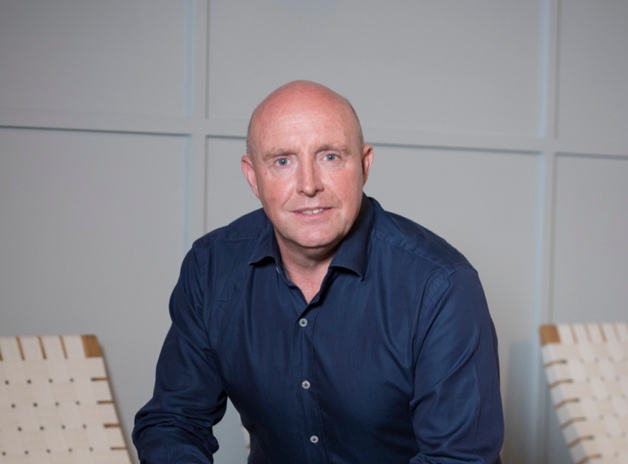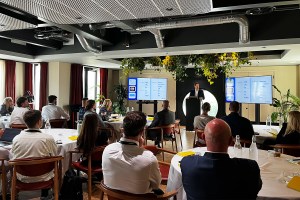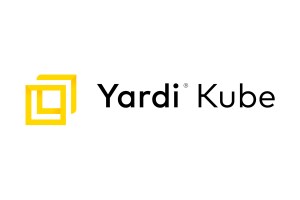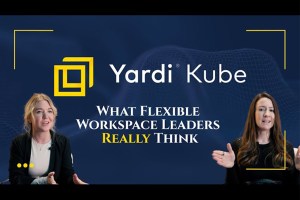Drive Success in Flexible Office Spaces with Connected Technology
GCUC UK Producer Tim Devitt caught up with Justin Harley, regional director at Yardi, to discuss how the last six months have been for Yardi and what he believes are the vital components to deliver successful flexible office spaces.

Tim – How has lockdown been for you and what impact has it had on the Yardi business?
Justin – On a personal level it’s had its pros and cons. With less time spent commuting, I’ve been able to look after myself a bit more, with the opportunity for lie-ins and a bit more exercise which is great. However, the hardest thing is the lack of human contact. Zoom is fantastic at what it does, but there’s no break, and making time for yourself is going to be more important than ever.
As for business, Yardi took a proactive approach to the lockdown migrating over 7,000 employees to work from home in a very short time and although initially customer activity stalled whilst businesses took stock of the situation, enquiries and activity was quick to return and we continue to grow. In fact, we have been pleasantly surprised at the level of activity. Customers have continued with implementing projects whilst there is a steady demand as witnessed by the number of RFP’s and tender requests that have come from across the real estate industry.
Tim – Has the pandemic been the catalyst for businesses to look to streamline their activities?
Justin – Yes for some businesses. Although some businesses had invested heavily in systems and were well placed to cope with the move to contact free service. Others were caught on the hop and have started to look at change. It will be interesting to see how they fare as the change is more cultural. Technology should be at the heart of all you do and Covid has exposed this. The challenge for many businesses is knowing how to implement the right solution and structure for their business.
Flex space has been slow to adopt and invest in technology. As a result, disparate systems and a high use of Excel still prevail in many operators. Covid has demonstrated the need for a single database which is the source of the truth, so that operators can view real time data and forecast financial performance as well as allowing customers to engage online or via an App.
Tim – With so many people still working from home, do you think technology can play a part in getting people back to the office?
Justin- I do, but I fear that government guidelines will be a stronger driver. I am craving for better Wi-Fi than I have at home. Reliable and secure internet is at the core of all we do. Up until now we have taken the office Wi-Fi for granted and people are missing it. There are tools out there now such as WireGuard that let operators offer VPN connectivity for members and staff when working from home which keeps collaboration and communities strong.
An operator should challenge itself by asking the question: Can my staff, customers and contractors conduct business in a contact free way?
Can clients book meeting rooms online? Can access control be set up and used via an App? Can supplier invoices be scanned into an approval process so payables are updated? Can work orders be raised online for centre cleaning and maintenance teams? Can Investors receive monthly statements to assess performance?
If the answer to these questions is yes, then you are well on the way to encouraging a return to the office. In my experience flex space has been very guilty of falling back on Excel spreadsheets to manage the property and its facilities. Now is the time to look at how this can be as automated as the front office.
Tim – As a relatively new entrant into the flexible workspace sector, what advantages does Yardi offer?
Justin – Up until now flex space has been serviced by a patchwork of systems. The focus has been systems to manage revenue only and passing invoicing and payment data to an accounting software. The result is that Excel spreadsheets are used to fill the gaps that these systems don’t address. The gaps range from facility management & property management, access control, cashflow forecasting and IFRS 16 lease management. Also, operators need effective tools to manage capital expenditure, fit-out budgets, suppliers and investors.
Yardi has been supplying software into the Real Estate sector for over 30 years and now services over 10k clients in 80 countries across all aspects of real estate. A sole focus on real estate brings an unrivalled knowledge of managing properties, fit out and construction projects, Investors, forecasting and of course facility management. By adding Yardi Kube to our overall product suite Yardi is the only technology provider to offer a single connected solution which offers an insight in all aspects of flexible workspace management. We pride ourselves on what it takes to run any property. The result is a fully connected software system that connects all the necessary processes and data together.
Tim – Why is having a single connected solution so important?
Justin : Property is increasingly complex and investors manage portfolios across multiple asset classes. Having the one view is important because it gives you consistency of data and doesn’t have to integrate into multiple systems which drives up costs. There is consistency of data and why that’s important is it gives you a view of what is happening in your spaces, it gives you a better idea of what’s happening with your customers and suppliers.
My experience is that Excel spreadsheets are the “filler” to close the gaps that today’s systems don’t address. Inefficiency and cost comes within a flexible workspace when there is an over reliance using Excel.
Tim – Having been personally active in this sector for over the last 20 years, what do you think are the key components operators require in order to deliver excellent service in flexible office space?
Justin – It’s important that you have a system that automates as many processes as possible and accommodates the broad range of users you have. Your system should make life easier for clients, staff, investors and suppliers. Avoid too many systems as this drives up inefficiency and cost.
The obvious and most important aspect of running a successful space is excellent Wi-Fi and Internet but it still amazes me how many businesses think they can cut costs on this fundamental part of their service offering. 100% Wi-Fi coverage should be standard in every building!
Tim – You have mentioned integration a lot in our discussion, is this at the heart of a successful business?
Justin – Yes, in that we should have one connected system, and this is how Yardi operates too. Prior to entering into the Flex sector, Yardi acquired two businesses in order to have the right platform for flex operators. However, to ensure that these products were integrated, Yardi rebuilt the products in order to make it a seamless part of the core solution.
With these integrated systems it supplies consistency of data across multiple sectors which in turn makes decision making easier, faster and hopefully more efficient. It gives one single source of the truth, which means data is more accurate and it’s easier to get information.
Tim – Is the office Dead?
Justin – The traditional office is Dead!
Definitely not and it will be interesting to look back in 18 months’ time to see what has changed and how many companies go back to their old habits. There’s no doubt that Covid-19 has caused short term issues and accelerated the rate of change that had already started in how we use office space, and it has also helped highlight and change the many inefficiencies in how we worked which has been a good thing.
Most importantly it has demonstrated to operators that any engagement with their customers will need to be as efficient and frictionless as possible which will only be possible with a fully integrated system, supporting the day to day running operations of their space, be it health and safety, online engagements, contactless or digital assistance in property management.
One good example I heard this week of how office use has changed, not died, is the team bonding/strategic away days. In the past we left the office and went to a hotel to get our heads together to be creative and, in the future, we will be gathering back in the office!




